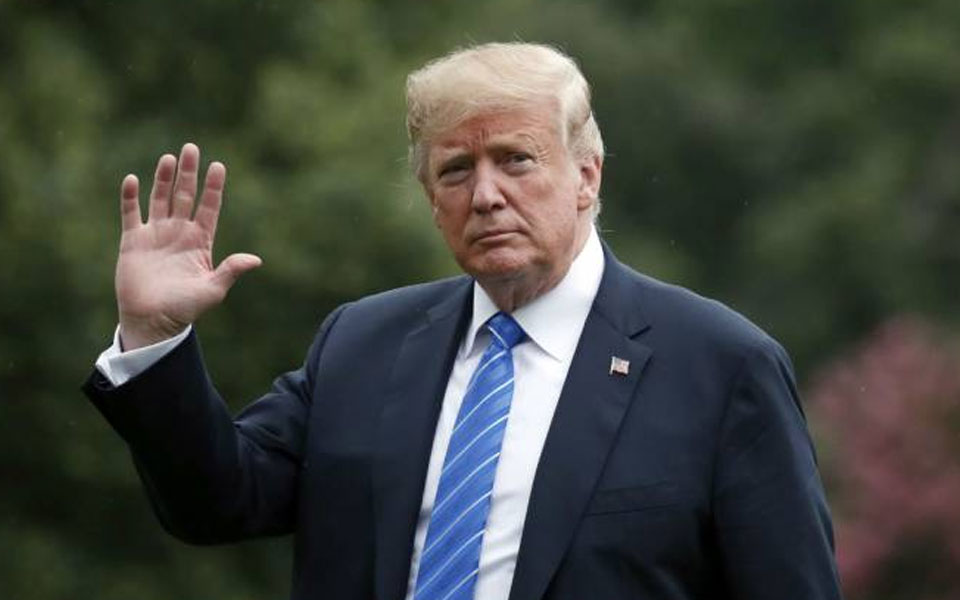Washington, Aug 6 : US President Donald Trump has admitted his son met a Russian lawyer in June 2016 "to get information on an opponent", but argues it was legal.
It is his most direct statement so far on the reason for Donald Trump Jr's meeting with Kremlin-linked lawyer Natalia Veselnitskaya in June 2016, BBC reported on Monday.
Special Counsel Robert Mueller is investigating US intelligence findings that Russians conspired to sway the election in Trump's favour. President Trump denies any collusion.
He has called the ongoing investigations in the US "the greatest political witch hunt in history".
Russia has repeatedly denied claims it interfered in the November 2016 presidential elections, where Trump defeated Democratic rival Hillary Clinton.
On Sunday, US media including the Washington Post and CNN reported that Trump was worried Donald Trump Jr could be in legal trouble because of the June 9, 2016 meeting with Veselnitskaya. They cited multiple unnamed sources.
Trump responded: "Fake News reporting, a complete fabrication, that I am concerned about the meeting my wonderful son, Donald, had in Trump Tower.
"This was a meeting to get information on an opponent, totally legal and done all the time in politics - and it went nowhere. "I did not know about it!"
Trump's latest tweet appears to contradict a previous statement from the Trump camp about the meeting.
When the meeting was first reported by the New York Times, Donald Trump Jr said in a statement that he and Veselnitskaya had mostly discussed a suspended programme for Americans to adopt Russian children.
However, he subsequently admitted he had agreed to the meeting after being told he would be offered information that would prove detrimental to Clinton. He also released the email exchange that brought about the meeting.
US media then reported that the US president had been involved in the initial statement his son issued on the meeting.
This was initially denied by Trump's team, but his lawyers later confirmed that he had in fact dictated his son's statement.
US commentators have argued that Trump's new admission that the meeting was to gain information about Clinton shows that the earlier statement was misleading.
Let the Truth be known. If you read VB and like VB, please be a VB Supporter and Help us deliver the Truth to one and all.
Dubai: Smoke was seen rising from an area near the United States Consulate in Dubai, according to witness accounts cited by Reuters.
There was no immediate official confirmation on the extent of damage or whether there were any casualties in the incident.
Earlier, the US embassy in Riyadh, Saudi Arabia’s capital, was also attacked. Authorities reported damage to the premises, but no casualties were recorded.
The developments come amid heightened tensions in the region, with Iran continuing to target US interests in the Middle East following deadly attacks launched on Saturday by Israel and the United States.
Near US embassy in Dubai pic.twitter.com/z5VTZNVxNO
— Sahil Shah (@thesahilsshah) March 3, 2026





